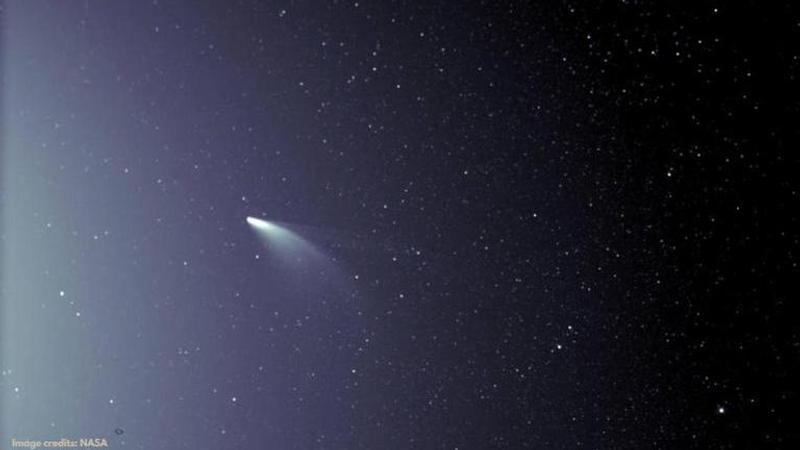Published 14:45 IST, July 11th 2020
Comet NEOWISE to streak across the sky through July into August
The Comet NEOWISE is currently about 200 million kilometres from the Earth and is bright enough to be seen in the sky throughout this month and early August.

A new tiny visitor called Comet C/2020 F3 NEOWISE was discovered earlier this year by NASA’s Near Earth Object Wide-field Infrared Survey Explorer telescope. The agency’s Parker Solar Probe was able to capture a beautiful shot of the icy wanderer on July 5, soon after its closest approach to the Sun. Unlike its 2020 predecessors, the C/2020 F8 SWAN and the C/2019 Y4 ATLAS, Comet C/2020 F3 NEOWISE was able to survive its closest approach to the Sun.
Comet NEOWISE – How it compares to the 2020 predecessors?
While in its approach to the Sun, Comet NEOWISE showcased an exemplary circular and a fairly condensed head, or coma compared to the faint, feathery, nearly ghostly coma showed by the ATLAS and the weird-looking coma displayed by the SWAN. Nevertheless, both Comet ATLAS and SWAN disappeared long before either of the two got close to the Sun’s vicinity.
Comet NEOWISE had its closest approach to the Sun last week on July 2 at 43 million kilometres and will reach the maximum point in the dawn sky on July 11 before it gradually moves towards the horizon each day. It is believed that if Comet NEOWISE manages to remain brighter through this phase, it will likely be visible in the second half of this month during the evening dusk.
The NEOWISE will be closest to the Earth between July 22 and July 23, when it streaks just over 10 crore kilometres from the planet. This is when it will be visible in the Northern hemisphere right after sunset. During this time, it can be easily viewed with a pair of binoculars and even with the naked eye. However, as it begins to move through the outer trenches of the solar system in August, it will start fading away.
Skywatchers have been able to see Comet NEOWISE in dark predawn skies for a few days now, appearing close to the northeast horizon. It is reported that there will also be an evening show as well where the icy wanderer will appear low in the northwest evening sky on July 12.
Image credits: NASA
Updated 14:46 IST, July 11th 2020



